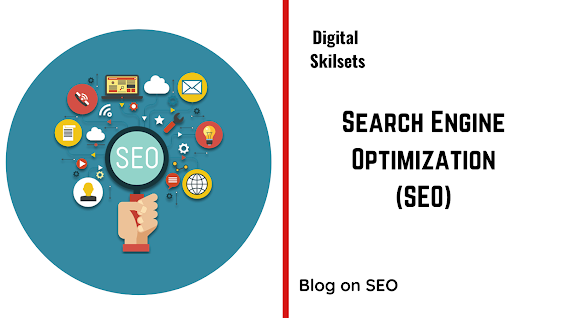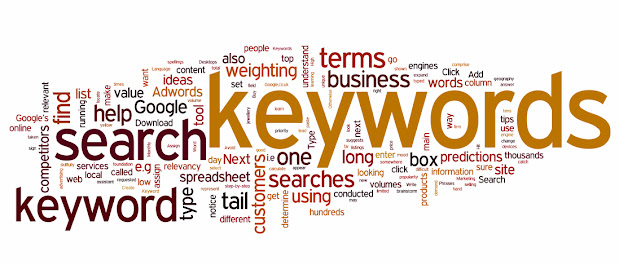Search Engine Optimization (SEO)
Search Engine Optimization
(SEO)
Content
- What is SEO?
- Types of SEO
- Why SEO is so important?
- Specific search engine examples
- Top tools for SEO
SEO stands for Search engine optimization. In simple terms, it means the process of improving your site to increase its visibility when people search for products or services related to your business in Google, Bing, and other search engines.
Seo targets unpaid traffic (known as "natural" or "organic" results) rather than direct traffic or paid traffic. Unpaid traffic may originate from different kinds of searches, including image search, video search, academic search, news search, and industry-specific vertical search engines.
Types of SEO
There are 4 types of SEO:
- On-Page SEO
- Off-Page SEO
- Technical SEO
- Local SEO
But I will be focusing on 2 types of SEO (next blog I will explain them in detail, in this blog I have written their definitions only)
One-page SEOOn-page SEO deals with the pages on a website, both in regards to content and the backend structure of a site.
The on-page optimization goal is to improve individual web pages to rank higher in search engine results-driving qualified organic and targeted traffic to your website. On-page SEO gives you control over the factors that influence ranking.
Off-page SEO
Off-page SEO is the action taken outside your website that impact search engine rankings. You have less control over these.
Off-page consists of link-building. Link building can be accomplished through various means, from guest blogging, outreach, participating in forums, and leaving comments on blogs.
Why SEO is so important?
SEO can help you build better relationships with your audience, improve the customer experience, increase your authority, drive more people to your site, give you an edge over the competition, and increase conversions, which means more sales, more loyal customers, and more growth for your business.
SEO is important because it keeps the search results fair. It reduces the ability to manipulate these results as much as possible so that the sites appearing for each search are there because they deserve to be there. Hard work and a website that appeals to visitors correlate with high search engine rankings, so if your site meets these criteria, you'll have a better chance at showing up in the results.
Users trust search engines and achieving a top spot in search engine rankings signals to searchers that your site is a credible source. The higher you rank in results pages, the more clicks and traffic your site will generate. SEO also improves user experience, making it more likely for customers to become repeat buyers. And SEO is cost-effective. SEO is a great way to drive qualified traffic to your site without directly paying for it.
Specific search engine examples
Here are some examples:
- Bing
- Yahoo
- Baidu
- AOL
- Ask.com
- Excite
- DuckDuckGo
- Wolfram Alpa
- Yandex
- Lycos
- Chacha.com
Top tools for SEO
There are many tools and software that SEOs use for optimizing their websites.
Here are some commonly used free and paid tools:
- Google Search Console - Google Search Console (formerly known as "Google Webmaster Tools") is a free tool provided by Google, and is a standard tool in the SEO's toolkit. GSC provides rankings and traffics reports for top keyboards and pages and can help identify and fix on-site technical issues.
- Google Ads Keyword Planner - Keyword Planner is another free tool provided by Google, as part of their Google Ads product. Even though it is designed for paid search, it can be a great tool to use for SEO since it provides keyword suggestions and keyword search volume, which can be helpful when doing keyword research.
- Backlink Analysis Tools - There are several link analysis tools out there, the two primary ones being AHREF's and Majestic. Backlink analysis tools allow users to analyze which websites are linking to their website, or the websites of competitors, and can be used to find new links during link building.
- SEO Platforms - Many different SEO platforms bring together many of the tools that SEOs need to optimize sites. Some of the most popular include Moz, Bright Edge, Search metrics, and Linkdex. These platforms track keyword rankings, help with keyword research, identify on-page and off-page SEO opportunities, and many other tasks related to SEO.
- Social Media - Most social media sites don't have a direct impact on SEO, but they can be a good tool for networking with other webmasters and building relationships that can lead to link building and guest posting opportunites.
The best SEO company in Varanasi where you can learn more about SEO and get more detail about Digital Markleting you can join a digital marketing course in Dizi Global Solution




Good one Harshal. 👍
ReplyDeleteNice blog
ReplyDelete